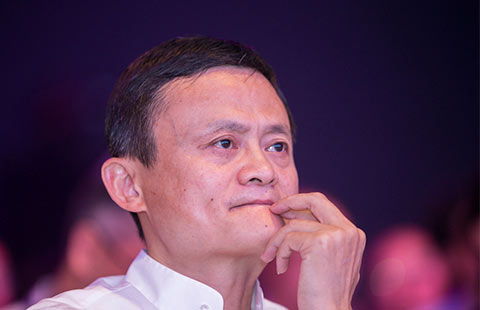NEEQ listings up, but woes persist
By Wu Yiyao (China Daily) Updated: 2016-08-15 07:56In two consecutive weeks to Wednesday, more than 230 companies debuted on the National Equities Exchange and Quotations, also known as the New Third Board, China's capital market for startups.
The surge was attributed to policymakers' efforts to promote a multi-level capital market system, which is seen as essential to meet the growing financing needs of smaller enterprises.
Now, there are more than 8,220 NEEQ-listed companies. Yet, the demand-supply equation in the funding scenario remains skewed, said analysts.
Beijing-based NEEQ was launched in late 2012 to supplement the Chinese mainland's two main stock exchanges in Shanghai and Shenzhen.
According to Shanghai-based Wind Information Technology Ltd, a financial information services provider, some 2,510 companies listed on the NEEQ in the first half of this year.
If the second half keeps pace, the overall figure will likely exceed 10,000 by this year-end. They would chase the nearly 50,000 NEEQ-recognized qualified investors for funding support.
Many individual investors who wish to invest in the market do not meet the current requirement that each of them must have at least 5 million yuan ($750,900) in investable funds.
Since public funds are not allowed in the NEEQ, the number of investors has not been growing briskly, according to a research note from Lianxun Securities Ltd.
That is not all. Many NEEQ-listed companies have not been traded for weeks or months, or have not raised any funds in the past few months, showing a lack of liquidity in the market.
Yu Zunbao, an analyst with Southwest Securities Ltd, said higher turnover would boost market liquidity, but listed enterprises need to demonstrate growth potential to attract more investors.
Analysts said NEEQ's trading volume rose more than 7 percent in the past two weeks to more than 4 billion yuan. Four companies recorded deals worth more than 100 million yuan each, with Donghai Securities, a Changzhou-based small brokerage, seeing trades worth 900 million yuan in its shares.
But, between January and July, total funds raised on the NEEQ were sub-optimal at 5.83 billion yuan, or just 40 percent of companies' stated needs, suggesting market activity has been slow
This is further confirmed by the benchmark NEEQ Component Index that edged down to 1,161.9 points last Monday, the lowest year-to-date level, but recovered to around 1,200 points later last week.
A research note from Soochow Securities Ltd said lower entry barriers of the NEEQ may allow some companies with shrinking business and even loss-making companies to get listed. And any fundraising attempts by companies with invisible business operations may repel investors, it said.
The note further said there could well be "zombie enterprises" among those listed on the NEEQ. So, the bourse needs to optimize its structure for listed enterprises. Stricter policies for listing and fundraising are needed, it said.
- Central bank's net forex sales up in July
- Chinese monetary authority's balance sheet shrinks in July
- Belt & Road Initiative to foster China-Serbia win-win cooperation: Serbian expert
- China, India to support each other in organizing G20, BRICS summits: FM
- Making room for development of digital-age hotels
- Version of Amazon's Japan website takes fight to Alibaba
- China largely succeeds in RMB exchange rate reform over past year
- Kick-off date of Shenzhen-HK connect to be unveiled this week: Media

















